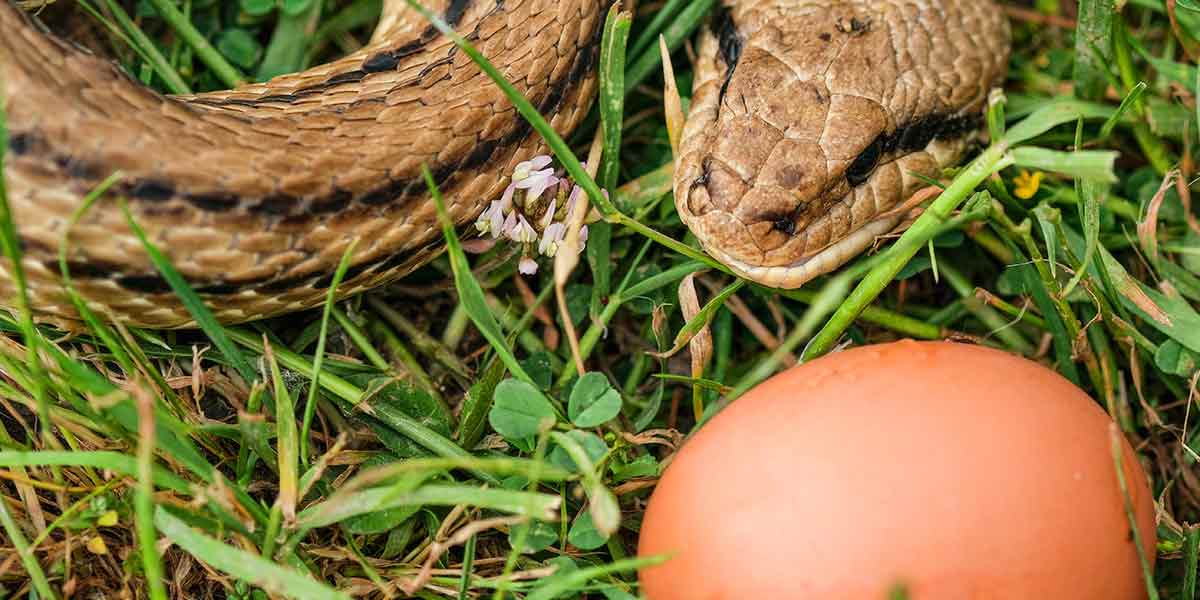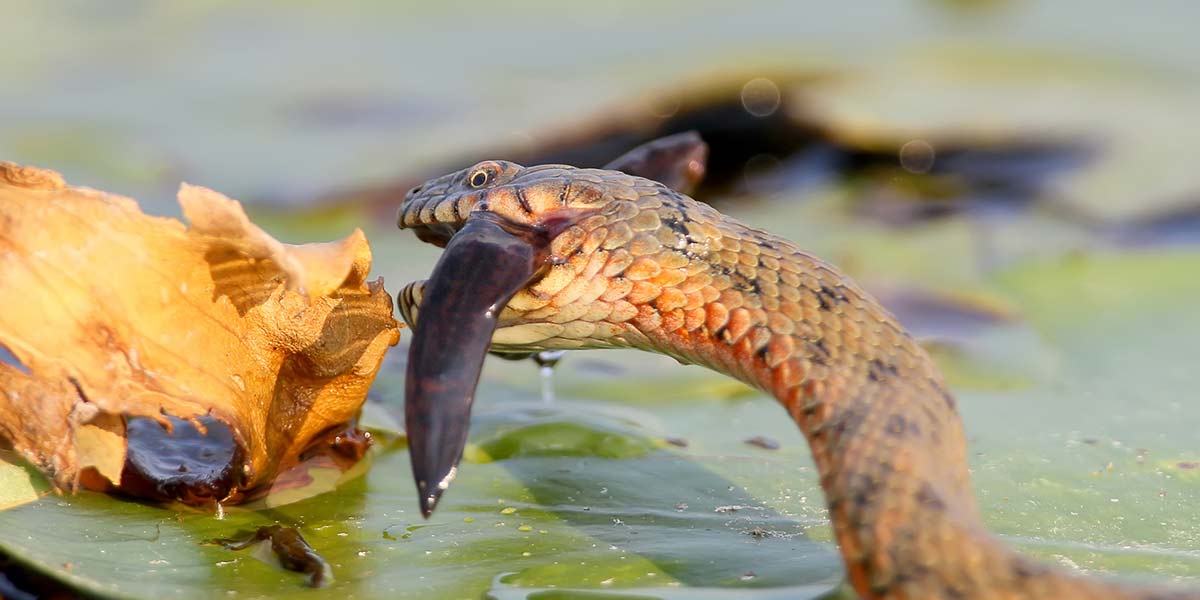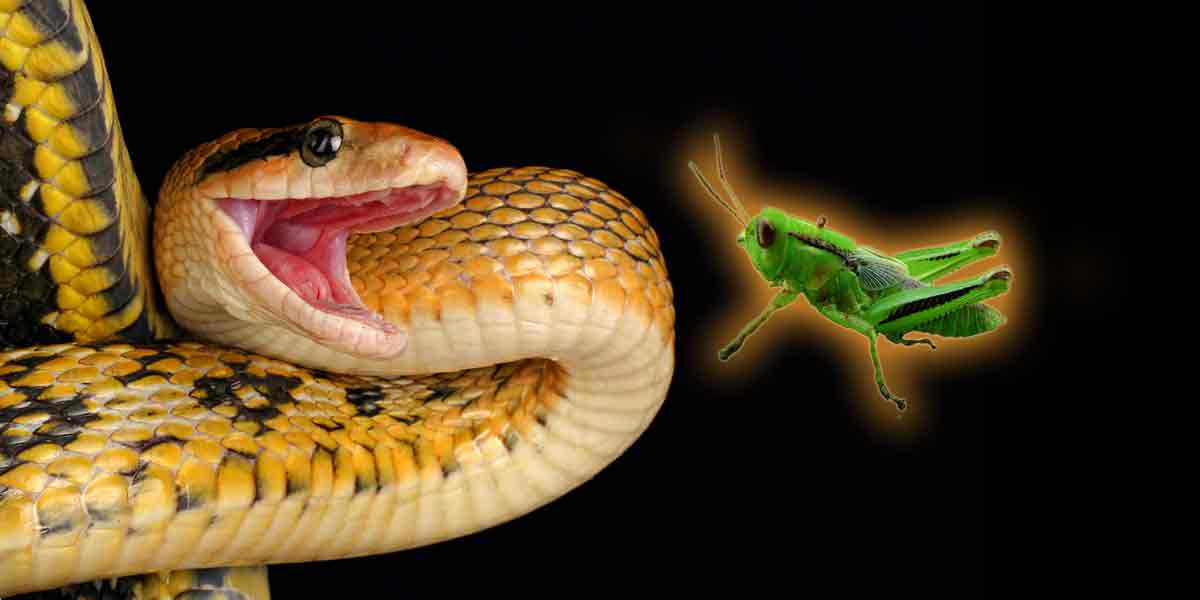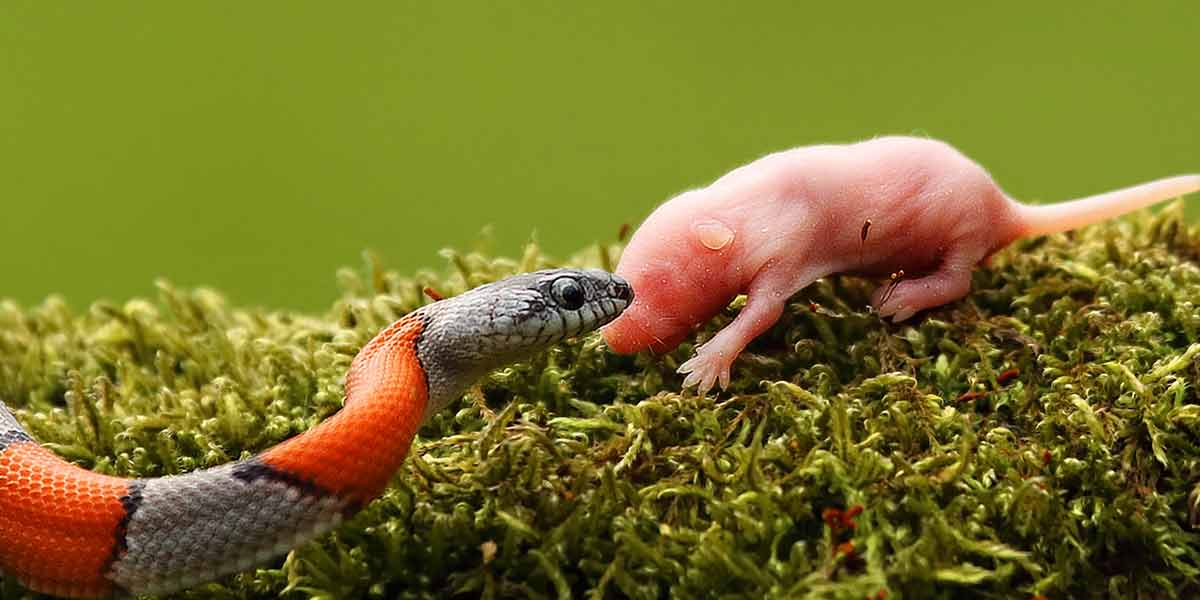Snakes, like humans, are omnivorous. They eat both plants and animals.
As an affiliate, we earn from qualifying purchases. We get commissions for purchases made through links in this website’s posts from Amazon and other third parties.
So, if you are asking yourself: Can I feed my snake eggs? The answer is: Some snakes can eat eggs, but others should not be fed eggs.
Can I feed my snake eggs?
In this blog post, we’ll take a look at some snakes that eat eggs as well as those that don’t. Keep reading to learn more!
Which snakes eat eggs in nature?
Several types of snakes eat eggs, including coral snakes, cobras, king snakes, and rattlesnakes. However, not all snakes eat eggs.
Coral snakes and king snakes, which both belong to the cobra family, are snakes that eat eggs. Coral snakes eat the eggs of other snakes, such as rattlesnakes. The king snake also eats eggs, but they primarily eat eggs from the chicken family.
While rattlesnakes are snakes that eat eggs, they tend to only eat the eggs of other snakes when they are hungry. While coral snakes and king snakes eat eggs that are laid by other snakes, rattlesnakes will prey on any animal or bird eggs they find, including eggs that are laid by rodents. But as we will explain, if you wonder if you can feed your snake eggs, well, rattlesnakes shouldn’t be fed eggs!
Which snakes you should not feed eggs to?
Snakes can eat eggs, but certain snakes shouldn’t.
Rattlesnakes and pythons should not eat eggs. Although rattlesnakes eat chicks, they shouldn’t eat eggs. Feeding rattlesnakes or pythons eggs will make them spit up food from the esophagus or stomach, causing even death. They also cannot digest the eggshell.
How can I feed my snake eggs?
Although snakes eat eggs, they are unable to eat hard-boiled eggs. Snakes cannot chew, so they swallow their food whole.
Watch the next video: Snake swallowing an egg
Hard-boiled eggs are not hollow, so a venomous snake would not be able to swallow them. Soft-boiled eggs are safe to eat, but you cannot cook them to the point that they resemble hard-boiled eggs.
Why do snakes eat eggs?
Eggs are a common food item for snakes. They can be eaten for several reasons, the most common of which is to digest them. The enzymes that are found in eggs help to break down food for snakes. Some snakes also eat eggs as a food source.
What type of eggs do snakes eat?
In the wild snakes eat the eggs of birds, lizards, and other species.
The Eastern Diamondback Rattlesnake for example, while it isn’t an egg eater, has been known to eat eggs. It will sometimes eat the eggs of lizards, small birds, or even snakes. We suggest not trying to feed eggs, like chicken eggs, your snake.
What can I feed my snake?
Snakes have very specific dietary needs, and they need to be fed properly. Feeding your snake eggs is not the appropriate diet for its health. In this blog post, we’ll take a look at how to determine what to feed your snake, as well as some potential snake food that you should avoid. Let’s dive in!
Snakes can eat insects
There are a variety of snakes that can feed on insects. Some common snakes that feed on insects are the garter snake and the king cobra. These snakes can catch and eat insects very quickly.
Snakes can eat mice
Different types of snakes, including garter snakes, rat snakes, and corn snakes, feed on mice. These snakes are beneficial because they help keep the rodent population under control.
Garter snakes are native to the United States and are one of the most widely used types of snakes for rodent control. The garter snake eats mice, rats, and other small mammals, and can be found throughout most of the country.
Rat snakes and corn snakes are also good snakes for rodent control. Rat snakes are native to California and Florida, and corn snakes are native to the Midwest.
Snakes can eat other reptiles
Rat snakes are common feeder snakes, and they are adept at catching small prey. They are also good at hunting in dense vegetation, which is why they are commonly used as snake catchers.
Garter snakes are common feeder snakes also, and they are adept at catching small prey. They are also good at hunting in dense vegetation, which is why they are commonly used as snake catchers.
Rat snakes and garter snakes are both common feeder snakes, but several other types of snakes can feed on other reptiles. If you’re looking to feed your snake, be sure to consult your local snake expert to find out which snakes are the best feeders for your specific type of snake.
Snakes can eat other mammals
As snakes get larger they feed on larger animals. The anaconda, python, green anaconda, boa constrictor, and reticulated python all feed on large mammals. These snakes can eat large mammals such as pigs, horses, cows, goats, elephants, rhinoceroses, and humans.
Some snakes eat rodents. The pigmy rattlesnake, kraits, and coral snakes all eat rodents. These snakes may eat mice, rats, squirrels, rabbits, bats, guinea pigs, muskrats, beavers, and even other snakes.
Snakes eat other snakes
Snakes in the wild consume many different animals, but when a snake finds the dead body of another snake, it ingests the victim’s body to digest it. However, it’s only a specific type of snake that can do this, a thick-bodied viper called the spectacled caiman.
These snakes primarily feed on fish, but occasionally they’ll attack snakes and attack other animals when the opportunity arises. When they do, they attack with extreme force and venom. For big snakes, a bite from these snakes can be fatal.
The coral snakes and rattlesnakes are all venomous. These snakes will feed on other snakes.
So, now you know what else you can feed your snake except eggs.
Conclusion
To sum up, although snakes can eat and do eat eggs in nature, I recommend not to feed eggs to your snake unless it is an egg-eater snake. Especially avoid eggs if you have a rattlesnake or python. While eggs are nutritious they can cause death to some snakes.
Also, you have to know that eggshells are dangerous for snakes so if you insist to feed your snake eggs try to boil eggs from quail or smaller species. Always consult your Veterinarian when getting a snake! Thank you for reading this article!






